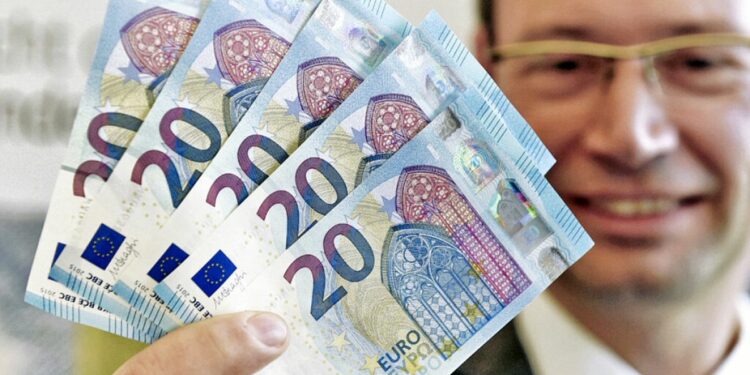US millennials (the generation born between 1981 and 1996) even named their price: they need an annual $525,000 (€480,700) salary to feel financially happy.
Meanwhile, Gen Z Americans ask for $128,000; Gen X $130,000; and Boomers say $124,000 a year would do. As a whole, the average American would settle with $284,167, according to the study.
If financial happiness has a price tag, the average American believes it amounts to having a net worth of $1.2 million (€1.1 million).
Across the pond, Europeans may settle for less: A 2018 study from Purdue University found that in Western Europe and Scandinavia, people considered $100,000 a year as a turning point for life evaluation and satisfaction. Having more than this amount could positively impact their thoughts about their lives.
In Eastern Europe, this turning point was much lower, at $45,000.
However, the study also claims that emotional well-being only increases hand in hand with an income of up to €50,000 in Western Europe and €35,000 in Eastern Europe.
Having more money than that has no additional impact on how happy people are. However, since the study was conducted during a few inflation-heavy years, Euronews Business adjusted these figures: Today, the amount would be approximately €58,205 for Western Europeans and €40,690 for Eastern Europeans.
What is financial happiness, anyway?
According to the US study, financial happiness means freedom, security, and relief to those surveyed.
Specifically, the survey revealed that 67% associated financial happiness with paying bills on time, 65% with living debt-free, 54% with affording everyday luxuries without worry, and 45% with owning a home.
For more than half of people, spending on experiences with loved ones mattered, while retiring on their own terms was important for 37%.
Almost four-fifths of surveyed Americans believed that financial happiness could enhance their health, leading to increased productivity and creativity at work. Additionally, 73% stated they would give up social media for financial happiness.
In reality, 73% of Americans say they’re experiencing financial stress, and a recent study showed that 85% of Europeans are either in a precarious financial situation or need to be careful to manage their expenses.
What do the rich say?
While having a lot of money doesn’t guarantee happiness, it certainly contributes. A study found that 81% of Europe’s most affluent individuals with a personal income of €100,000 are happy, but 75% earning less than that – though still wealthy – also reported happiness.
ADVERTISEMENT
Moreover, the wealthiest are notably happier with their jobs (73%) compared to those earning less than €100,000 a year (65%).
Age is a factor, with older affluent individuals expressing more life satisfaction than their counterparts under 35.
The study also revealed that affluent individuals in Western Europe are happier than those in the east, and engaging in sports enhances happiness, a sentiment likely applicable to everyone.
Where is it most expensive to be ‘happy’?
Adjusted figures from the Purdue University study, considering purchasing power ratios, indicate that the highest desired income for happiness is in Iran (€219,837) globally, and in Europe, it’s in Norway (€107,969) and Switzerland (€106,154).
ADVERTISEMENT
For London, the study suggests the equivalent of €94,490 is needed for happiness.
Source link : https://www.euronews.com/business/2023/12/05/how-much-money-do-you-need-to-be-happy-europeans-settle-for-less
Author :
Publish date : 2023-12-05 08:00:00
Copyright for syndicated content belongs to the linked Source.



